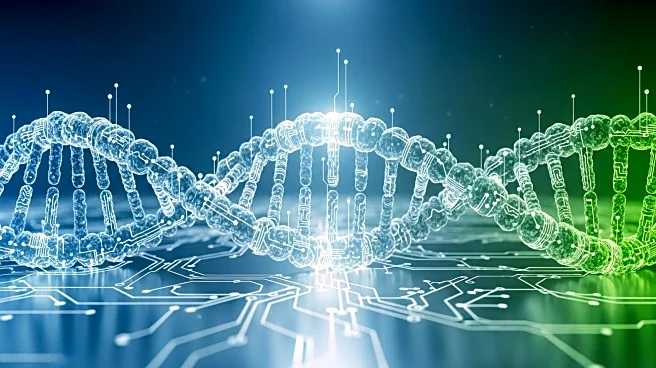What's Happening?
Artificial intelligence (AI) is increasingly being integrated into oncology drug development, with a focus on improving biomarker identification. According to a 2024 ICON survey, while only 16% of oncology researchers currently use AI for biomarker detection, nearly half see it as a key area for accelerating drug development. AI's ability to analyze large datasets and identify complex patterns offers potential for more accurate biomarker discovery, which is crucial for precision medicine. However, challenges remain, including the need for large, diverse datasets and the explainability of AI algorithms.
Why It's Important?
The integration of AI in oncology biomarker development could significantly enhance precision medicine by improving patient selection and treatment outcomes. AI-driven biomarkers can lead to more tailored therapies, potentially increasing the efficacy of treatments and reducing costs. This advancement is particularly important in immuno-oncology, where predictive biomarkers are scarce. The ability of AI to integrate multimodal data could lead to the discovery of meta-biomarkers, offering a more comprehensive understanding of cancer biology and treatment responses.
What's Next?
Future directions in AI biomarker development include overcoming challenges related to data quality and algorithm transparency. Efforts are underway to integrate AI into clinical practice, with a focus on multimodal data analysis to improve biomarker accuracy. As AI technology evolves, it is expected to play a pivotal role in transforming oncology therapeutics, enhancing precision medicine, and improving patient outcomes.
Beyond the Headlines
The ethical implications of AI in healthcare, particularly in terms of data privacy and algorithm bias, are critical considerations. Ensuring that AI models are transparent and unbiased is essential for gaining regulatory approval and public trust. The long-term impact of AI on healthcare could lead to more personalized and effective treatments, but it requires careful management of ethical and legal challenges.










